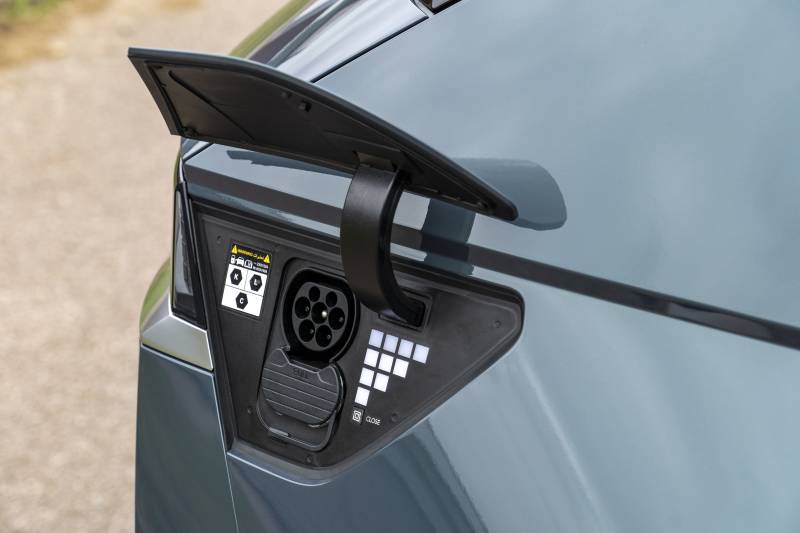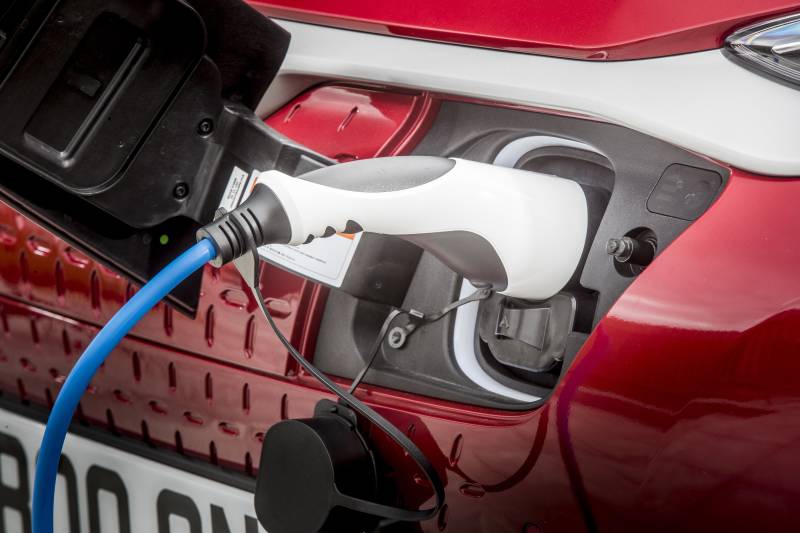Hyundai Hybrid & Electric Vehicles in Lymington, Hampshire
Hyundai is working hard to create an electrified world with the introduction of their range of hybrid and electric cars which are set to expand year on year, with new introductions coming throughout 2021 and that Everton Garage will be happy to bring to all of our customers in Lymington and around Hampshire and Dorset area.
What is a Hybrid car?
A Hybrid car is a type of electric vehicle that utilises more than one source of energy to power the engine. These forms of energy are usually a combination of electric energy that is stored in a battery and conventional petrol or diesel engine, but there are some Hybrid's that don't need to be plugged in and run from regenerative energy that is created from braking or decelerating.
Benefits of a Hyundai electric car
There's a wide range of benefits associated with owning a Hyundai Electric car:
Zero Emissions
Electric cars run purely from the electric charge, rather than needing to be refuelled using petrol or diesel. Because these cars are low emission vehicles, owners can travel in low emission zones, which are also in place across Europe as well as the UK, so if you will be taking your car overseas, it's an important consideration to make.
Fast charging
There are multiple charging options available with electric cars, including rapid charging which can often charge your vehicle quicker than a smartphone. There's the option to charge your car at home or on the go at a public charge point. Public charge points offer faster charging, but home charging is much more convenient.
Reduced maintenance costs
Because electric cars have fewer moving parts, there is less chance of something going wrong, meaning maintenance and repair costs are drastically reduced. Standard combustion engines require regular oil changes as well as replacement brake pads and discs which can soon add up.
Hyundai electric cars
Hyundai currently has four electric cars currently in the range:
Hyundai IONIQ 5 Electric
This all-electric SUV boasts impressive range, innovative features, and a spacious interior, making it a strong contender in the EV market.
With two battery options (58kWh and 77.4kWh), the Ioniq 5 delivers an EPA-estimated range of up to 303 miles, perfect for conquering commutes or road trips. Its powerful electric motors offer zippy acceleration, making the drive enjoyable. Plus, ultra-fast charging capability allows you to top up 80% of the battery in just 18 minutes.
Hyundai IONIQ 5 N Electric
The Ioniq 5N catapults you from 0-60 in 3.4 seconds, thanks to its dual electric motors and N Grin Boost function. Feel the instant torque and carve corners with precision thanks to the electronically controlled limited-slip differential and adaptive dampers. This is racetrack-ready performance in an everyday package.
Its spacious interior, crafted with premium materials, offers a luxurious driving experience. Embrace the panoramic moonroof and relax in the driver-focused cockpit with N-specific features like bolstered seats and a customisable digital display.
Hyundai IONIQ 6 Electric
The IONIQ 6 embraces a stunning, curved form inspired by a streamlined teardrop. This not only makes a statement but also minimizes drag, boosting its range and fuel efficiency.
Don't be fooled by its sleek looks. The IONIQ 6 packs a punch with its powerful electric motors, offering exhilarating acceleration and a top speed of 185 mph (depending on trim). Choose from two battery options, with the larger one boasting an EPA-estimated range of up to 379 miles, quelling any range anxiety.
Hyundai KONA Electric
Hyundai KONA Electric offers a staggering 279-mile range with 39-kWh and 64-kWh battery versions available. It charges up to 80% in as little as 75 minutes with the larger battery. The KONA is seriously fun to drive and doesn’t compromise on space compared to the regular car.
All brand-new electric Hyundai models come with a 5-year unlimited mileage warranty and are eligible for a Government grant of up to £3,500.
Hyundai Hybrids and Plug-in Hybrid Cars
Hyundai has three hybrid cars in the range:
Hyundai Tucson Hybrid and Plug-in Hybrid
Combine a 1.6L turbocharged engine with an electric motor, and you get a combined 230 horsepower and 350 Nm of torque. This translates to zippy acceleration and a smooth, quiet ride, all while delivering an impressive 37 mpg combined (EPA estimated). So, conquer the road while saving on fuel costs.
Stay connected and informed with the Tucson Hybrid's suite of technologies. A 10.25-inch digital instrument cluster displays key information, while an optional 8-inch touchscreen infotainment system keeps you entertained and in control. Advanced driver-assistance systems like Highway Driving Assist and Blind-Spot Collision Warning ensure your safety on the journey.

KONA Hybrid
The Hyundai KONA Hybrid never needs plugging in. Instead, the 1.6 GDi petrol engine charges the battery pack powering the electric motors. The petrol engine kicks in more of the time than the plug-in so use more fuel, but the efficiency is still awesome. Drive-in EV mode and you’ll use no petrol around town. Now that’s smart.
Santa Fe Hybrid
The Hyundai Santa Fe Hybrid is a seven-seater SUV that charges a battery using a combination of regenerative braking and the petrol engine. There's multiple modes available with the Santa Fe, including Snow and Sand & Mud, so if you are looking for an SUV that is capable of driving on almost any terrain with ease, the Hyundai Santa Fe would be an ideal option.
The difference between Hyundai Hybrid and Electric cars
Hybrid Cars - Hybrid vehicles have a conventional combustion engine which is assisted by an electric motor, allowing them to achieve low emissions. The batteries that power the motor are charged by the engine and via regenerative braking. If you're looking for a more economical way of driving, a Plug-in Hybrid can be charged from the mains, offering extended range and allowing the car to run purely from the electric power for zero-emissions driving.
Electric Cars - Electric cars do not have a conventional engine and are powered solely by battery-powered electric motors for zero-emission driving. These batteries are charged by a combination of the mains supply and regenerative braking. Continuous advancements have meant that the range of electric vehicles has improved over time.




